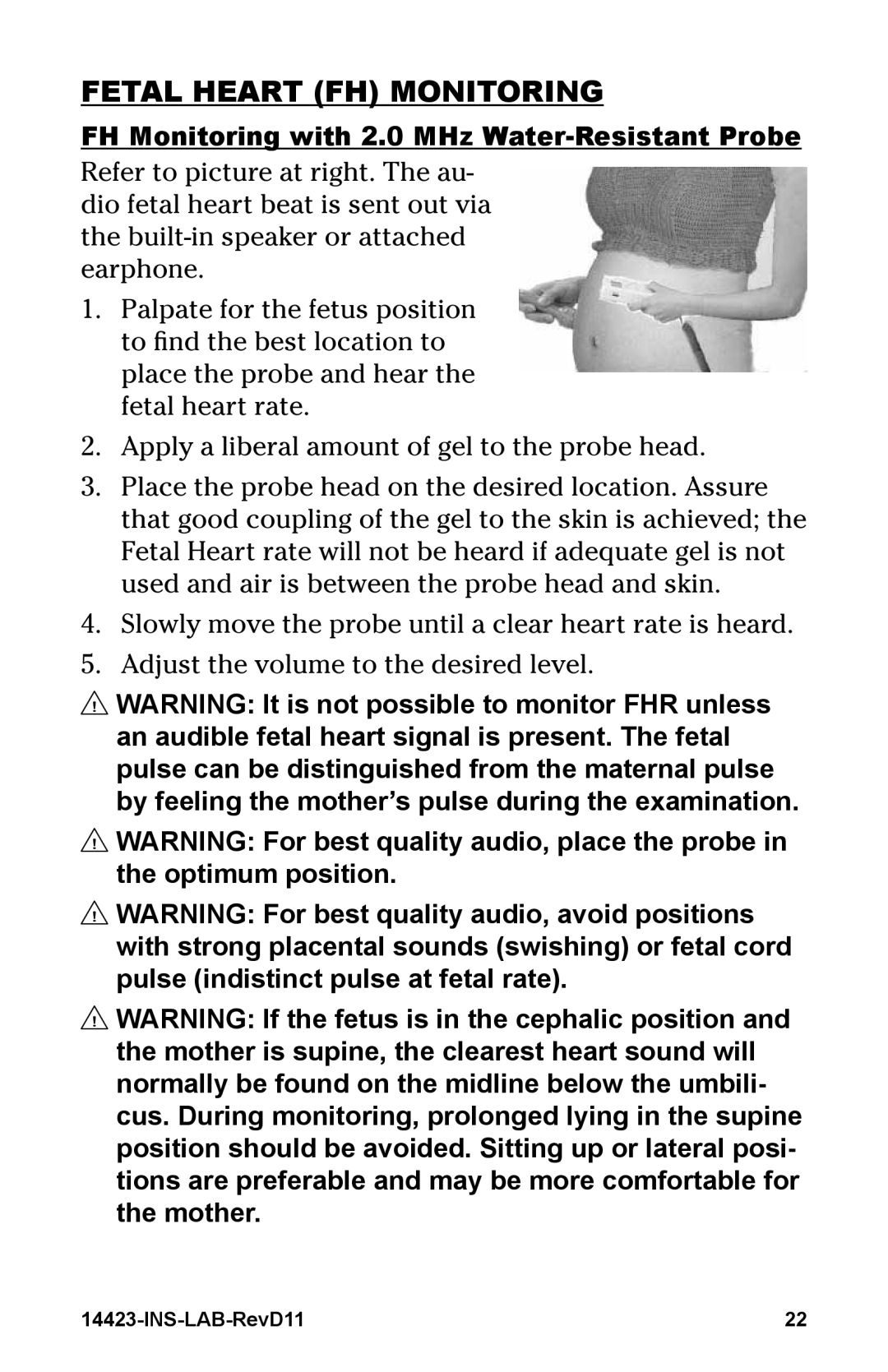
FETAL HEART (FH) MONITORING
FH Monitoring with 2.0 MHz Water-Resistant Probe
Refer to picture at right. The au- dio fetal heart beat is sent out via the
1.Palpate for the fetus position to find the best location to place the probe and hear the fetal heart rate.
2.Apply a liberal amount of gel to the probe head.
3.Place the probe head on the desired location. Assure that good coupling of the gel to the skin is achieved; the Fetal Heart rate will not be heard if adequate gel is not used and air is between the probe head and skin.
4.Slowly move the probe until a clear heart rate is heard.
5.Adjust the volume to the desired level.
![]() WARNING: It is not possible to monitor FHR unless an audible fetal heart signal is present. The fetal pulse can be distinguished from the maternal pulse by feeling the mother’s pulse during the examination.
WARNING: It is not possible to monitor FHR unless an audible fetal heart signal is present. The fetal pulse can be distinguished from the maternal pulse by feeling the mother’s pulse during the examination.
![]() WARNING: For best quality audio, place the probe in the optimum position.
WARNING: For best quality audio, place the probe in the optimum position.
![]() WARNING: For best quality audio, avoid positions with strong placental sounds (swishing) or fetal cord pulse (indistinct pulse at fetal rate).
WARNING: For best quality audio, avoid positions with strong placental sounds (swishing) or fetal cord pulse (indistinct pulse at fetal rate).
![]() WARNING: If the fetus is in the cephalic position and
WARNING: If the fetus is in the cephalic position and
the mother is supine, the clearest heart sound will normally be found on the midline below the umbili- cus. During monitoring, prolonged lying in the supine position should be avoided. Sitting up or lateral posi- tions are preferable and may be more comfortable for the mother.
| 22 |
